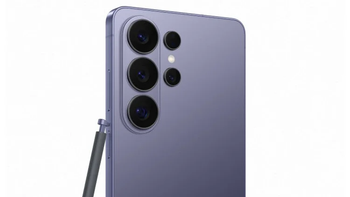iPhone 17 display requirements may force Apple to cut ties with BOE
iPhone 17 display upgrades may leave no room for BOE and Apple's relationship.

A tale as old as time: China-based display manufacturer BOE is having trouble passing the strict requirements set in place by Apple. If this continues, the iPhone 17 family will use displays exclusively from Samsung and LG, and BOE will lose a major business prospect.
BOE is currently (translated source) trying to pass the display requirements for the iPhone 16 Pro, which uses an LTPO OLED screen. Apple calls this a “ProMotion” display, and its biggest advantage is its ability to reduce its refresh rate from 120 Hz all the way down to just 1 Hz. This is useful for preserving battery life when using apps that don’t require high refresh rates, or when the phone’s always-on display is active.
Multiple reports have come in stating that Apple is thinking of shifting all of the iPhone 17 models to displays with higher refresh rates. If BOE is being asked to pass the LTPO OLED display requirements, then there is a good chance that every single iPhone 17 model will ship with a ProMotion screen.
However, BOE has been unable to pass these tests. Furthermore, LG Display’s recent large investments have industry experts wondering whether the company already has sizable orders lined up. Both Samsung and LG have reportedly begun mass manufacturing of displays for the iPhone 17 series.

Apple has been trying to shift to BOE for years, mainly because this will result in a reduction of manufacturing costs. However, the company isn’t willing to compromise its flagship experience, and even debuted its in-house cellular modem on the budget iPhone 16e.
Samsung is also concerned about rising costs, especially now that 2 nm chips are around the corner and cost significantly more. According to reports, Samsung is considering Chinese suppliers of materials for OLED manufacturing. This decision is allegedly driven by the singular goal of reducing manufacturing costs. The company has been hesitant in the past because such a move will involve sharing its roadmaps with said suppliers.
Are you excited for all iPhone 17 models to feature 120 Hz?
I can't wait
33.53%
Not excited
15.57%
What took them so long?
50.9%
However, BOE has been unable to pass these tests. Furthermore, LG Display’s recent large investments have industry experts wondering whether the company already has sizable orders lined up. Both Samsung and LG have reportedly begun mass manufacturing of displays for the iPhone 17 series.

The iPhone 16 Pro uses an LTPO OLED display. | Video credit — Apple
Apple has been trying to shift to BOE for years, mainly because this will result in a reduction of manufacturing costs. However, the company isn’t willing to compromise its flagship experience, and even debuted its in-house cellular modem on the budget iPhone 16e.
Samsung is also concerned about rising costs, especially now that 2 nm chips are around the corner and cost significantly more. According to reports, Samsung is considering Chinese suppliers of materials for OLED manufacturing. This decision is allegedly driven by the singular goal of reducing manufacturing costs. The company has been hesitant in the past because such a move will involve sharing its roadmaps with said suppliers.
If BOE is unable to pass Apple’s requirements in time, then the iPhone 17 lineup will only feature displays from Samsung and LG. BOE may catch up in the future, but this will undoubtedly be a major blow to the manufacturer.
Follow us on Google News













Things that are NOT allowed:
To help keep our community safe and free from spam, we apply temporary limits to newly created accounts: